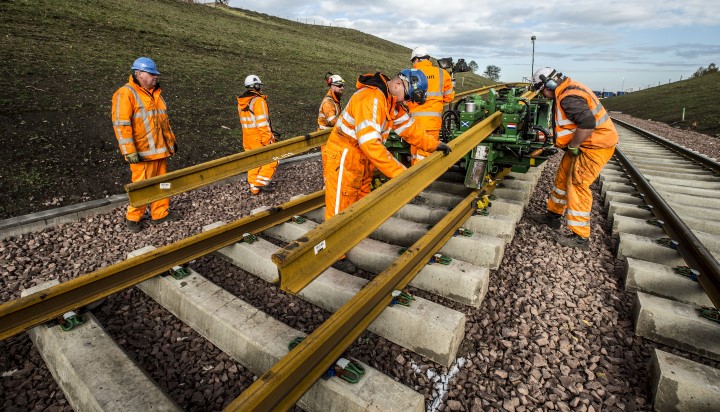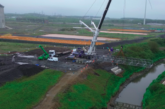
Civils contractors have lent their backing to a House of Commons Transport Select Committee report on rail investment and urged the Government to work with all parties to ensure its recommendations are implemented in full.
The report, Rail Infrastructure Investment: Fourth Report of Session 2017-19, recognises the railway network as an “economically vital national asset”, calls for lessons to be learned from the current rail control period (CP5, 2014-19), and recommends the re-categorisation of three electrification schemes as pending.2
Commenting, Civil Engineering Contractors Association (CECA) Rail Director Bill Free said: “This report sets out the lessons that must be learned by Government regarding the past four years of investment. We are pleased that the Select Committee have recognised the difficulties the supply chain has experienced throughout CP5, where volatility in the flow of work has impeded the ability of our members to forward plan.
“We also welcome the fact that CP6 is being planned far more thoroughly and with a smoother profile. CECA has also long-championed rebalancing the economy, and it is welcome that this report calls for the DfT to initiate discussions with HM Treasury about how economic rebalancing can be made an intrinsic consideration in future transport scheme appraisals.
“However, we share the Committee’s concern about the ‘Market-Led Proposals’ approach to enhancements, which seem to be less likely to achieve the goals of balancing regional disparities in investment. CP5 regrettably saw the much-publicised cancellation of electrification schemes on the Midland Mainline (MML), the Great Western Mainline (GWML) in south Wales, and the Lakes Line (LL) from Oxenholme to Windermere.
“CECA supports the re-categorisation of these schemes as pending, and agree that the Department for Transport, Network Rail and industry must work together to learn the lessons of previous electrification schemes. It is clear that electrification schemes in Scotland and elsewhere in England are now being delivered for substantially less pounds per kilometre than the high profile Great Western project. Key to this success is the early involvement of the contracting industry, who are more clearly focussed on the required outcomes.
“A continuation of electrification work will lead to further reductions, as we move up the learning curve and improve efficiencies. It is vital that Government learns the lessons of the current investment cycle, if it is to deliver the pipeline visibility our members require, and to make Control Period 6 a successful driver of growth in the UK economy.”
For further information on the Civil Engineering Contractors Association (CECA) click here








